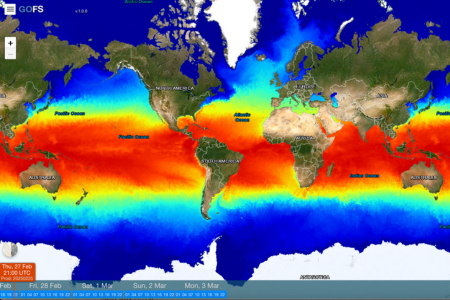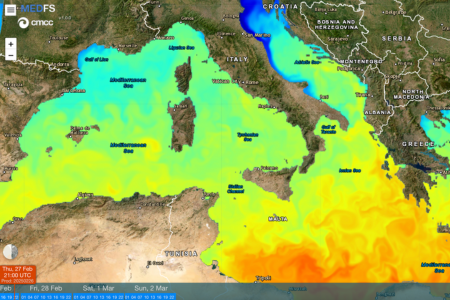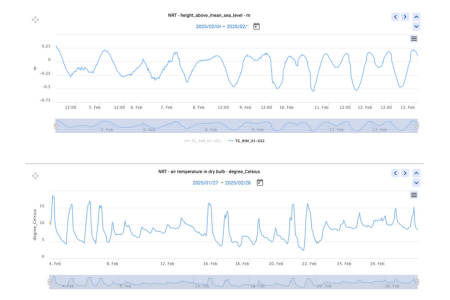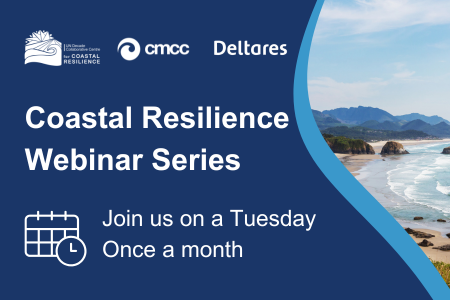Improve science information for all (SI)
Enhancing ocean coastal monitoring, promoting open access to data, and fostering collaboration to bridge knowledge gaps and support evidence-based decision-making.

Ocean coasts are highly vulnerable areas of the planet where the population concentrates and human impacts on marine ecosystems may become increasingly adverse.
The UN Ocean Decade is expected to transform our understanding of ocean coastal areas, as well as improve their monitoring and prediction. Coordination and synthesis of these efforts are therefore necessary, along with the promotion of new actions to fill gaps. Ensuring open access and data-sharing is fundamental to enhance the scientific value of outputs, to foster collaboration, and to enable evidence-based decision-making for coastal resilience. For this strategic objective, the DCC-CR will document scientific case studies from Decade Actions trying to resolve gaps in a timely manner, recommend potential new science and technology actions, in particular support new community science for coastal resilience and advise the DCU on the advancements in several sectors of coastal science and engineering.
The inclusion of CMCC and Deltares as strategic partners significantly expands the scope and effectiveness of SI. The contributions of CMCC and Deltares include facilitating access to Digital Twins, Multi-Hazard Early Warning Systems, climate downscaling methodologies and open-source platforms for coastal management. Both Partners will foster the integration of AI-enhanced data analysis, visualization and decision-making processes, providing actionable insights for stakeholders.
OUR COMMITMENT TO IMPROVING ACCESS TO SCIENTIFIC INFORMATION FOR ALL

CMCC Global Ocean Forecasting System (GOFS16)
The Global Ocean Forecast System (GOFS16) is an operational ocean analysis and forecast service from CMCC Foundation. Since early 2017, GOFS16 has been running daily at the Euro-Mediterranean Center on Climate Change, producing 7-day forecasts of the global ocean and sea ice environmental variables, including ocean temperatures, salinities, currents, and sea ice thickness and concentration. The system is based on a global eddy resolving ocean model (Iovino et al. 2016), combined with a state-of-the-art variational data assimilation system (Storto et al. 2011, Storto & Masina 2016). It is massively parallelized (Cipollone et al., 2020) and capable of assimilating high-resolution space-borne and conventional observing networks, including hydrographic profiles and satellite data.

CMCC Mediterranean Forecasting System (MFS)
The Mediterranean Analysis and Forecasting System (MedFS), a prediction service developed by CMCC Foundation, became operational in the late 90s (Pinardi et al., 2003, Pinardi and Coppini 2010, Tonani et al., 2014, Coppini et al., 2023) and it has been part of the Copernicus Marine Service since 2015. Operationally maintained at CMCC since 2018, MedFS provides regular and systematic information about the physical state of the Mediterranean Sea. The service is available 24/7, 365 days a year.

EMODnet-InterBox Sensor
CMCC has developed a low-maintenance and easy-to-install sea level sensor, the InterBox Sensor, with an atmospheric weather station. It is designed to measure water levels with high accuracy. The sensor will be used for a High School Course in Rimini.
Data are open and freely downloadable from the European Marine Observation and Data Network (EMODnet).

Coastal Resilience Webinar Series - Archive
As part of the DCC-CR's effort to improve scientific information for all, we, together with our Partner Alliance Network, formed by CMCC and Deltares, promote the Coastal Resilience Webinar Series once a month, on a Tuesday.
This series explores case studies, research, and stories of resilient coastal communities, along with real-world solutions to protect and restore coastal ecosystems. Topics include nature-based solutions and their impact on building coastal resilience. Each session features leading researchers, educators, and practitioners.

Our Publications
This section gathers publications to which DCC-CR members have contributed, reflecting our commitment to advancing coastal resilience within the framework of the UN Ocean Decade. Through these contributions, we aim to support evidence-based decision-making, foster collaboration, and drive meaningful progress towards a more resilient and sustainable future for coastal communities and ecosystems.